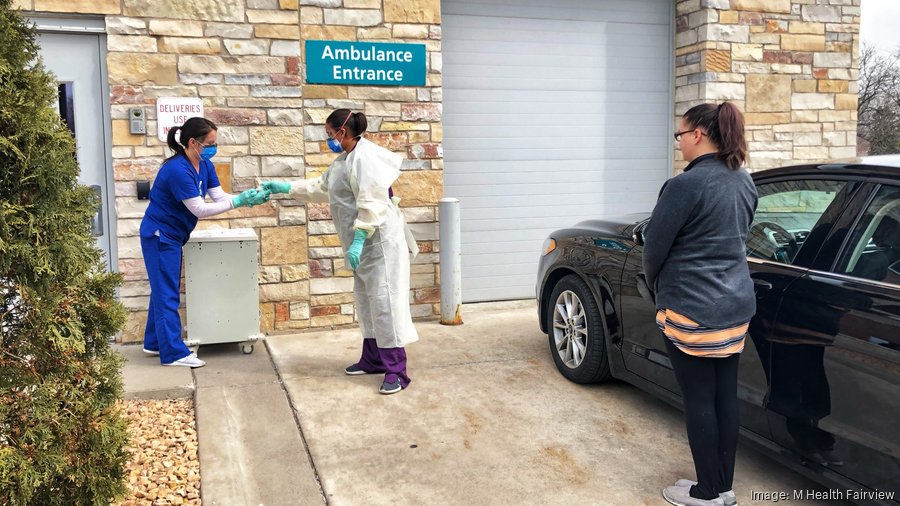Minnesota had the ninth-most new cases of Covid-19 in the United States over the past seven days, according to figures released by the CDC, another signal that the North Star State is swept up in the Midwest's virus explosion.
Minnesota reported 16,870 new cases of Covid-19 over the past week, one of six Midwestern states in the top 10 states reporting case growth. The Minnesota Department of Health reported 2,954 new cases of Covid-19 on Monday resulting from 37,429 tests.
"While any given day's numbers may grab attention, it's really the weekly and longer-term patterns that are more useful for tracking where we are with the pandemic," Department of Health Commissioner Jan Malcolm said.
Part of the growth in cases has come from people returning to work. There were 95 workplace outbreaks, or instances where at least seven people become infected with the virus, in the week of Oct. 24, the last week for which data is reliable. That's a 76% jump from the previous weekly high of workplace outbreaks, and it includes a broader group of businesses than previous outbreaks. While previous explosions of the disease often focused around food manufacturing plants, these outbreaks also include other manufacturing workplaces, traditional offices and retail environments, Malcolm said.
Restaurants have contributed to the spike in the virus — 161 restaurants have been investigated by the Department of Health as potential spots of infection. The department has identified 74 outbreaks stemming from people eating at restaurants, and 3,185 cases of the virus can be linked to eating at restaurants.
"People get exposed to this virus when they're out and about from people who don't know they have it, and other people take it home and that silent spread gets into our schools, into our long-term care and into our hospitals," Malcolm said.
Hospitalizations are also up. Minnesota hit its high-water mark for hospitalizations on Friday when 772 people were seeking care for Covid. That number is down slightly to 748 people on Monday. Hospital capacity is currently stable, the Department of Health said.
The new total of confirmed cases in Minnesota is 153,620 since the pandemic began. The state has cumulatively completed over 2.9 million tests for the virus. A total of 10,437 Minnesotans have been hospitalized by the virus and 2,463 Minnesotans have been killed, including 47 people since Friday afternoon.
There have been 231,181 deaths attributed to Covid-19 in the United States since the pandemic began, the most in the world, according to the Johns Hopkins University Coronavirus Resource Center.
The U.S. has had 9,240,261 confirmed cases of the disease, which is also the most in the world; the country recorded over 100,000 new cases of the virus for the first time last Friday. The states hardest hit include New York, Texas, California, Florida and New Jersey, though the Midwest and Great Plains states are now considered the center of the virus.
Minnesota's immediate neighbors (the Dakotas, Iowa and Wisconsin) currently lead the nation in cases per capita; North Dakota is first, with 141.6 cases per 100,000 people over the past seven days, while South Dakota is second, Wisconsin is third and Iowa is sixth according to the CDC. Minnesota, with 43 cases per 100,000 people over the past seven days, is 13th in the nation. Wisconsin has also seen the third-most total cases in the country over the past seven days, with 32,506.
"The takeaway for today is that Minnesota is in a bad spot due to rapid community spread of Covid-19 and it's going to get worse before it gets better," Malcolm said. "It's up to all of us [to] determine whether we will be in the crisis of our neighboring states like Wisconsin or if we will collectively make the right decisions and slow down the spread."





